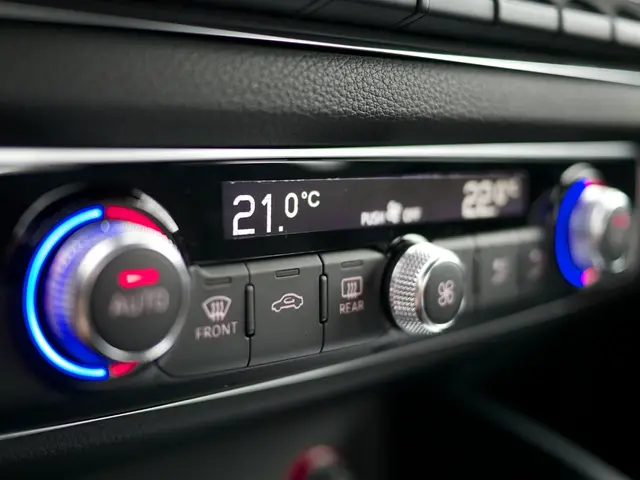Pomegranate Leaves Key to Breakthrough in Lithium Recycling
Researchers at the Technical University of Clausthal have made a breakthrough in lithium recycling. They've developed a method using punicin, a natural substance from pomegranate leaves, to achieve high lithium recovery rates. This innovation could make recycling lithium-ion batteries, used in devices like smartphones and electric cars, more sustainable and cost-effective.
The team, led by Prof. Schmidt, has applied the technique of flotation, commonly used in ore processing, to lithium recycling. They use punicin derivatives as collectors to separate valuable lithium-containing minerals from gang materials. So far, they've achieved recovery rates of up to 92 percent.
The project involves collaboration with colleagues from various disciplines at the Technical University of Clausthal and other institutions. External researchers contributing to newer lithium recycling processes hail from TU Bergakademie Freiberg, TH Nürnberg, and RWTH Aachen University. The group is also exploring the use of punicin derivatives for recovering other valuable minerals like lithium manganates, copper, and tantalum.
Punicin's unique properties make it ideal for this process. It can switch its charge based on pH value and form radicals under light, aiding in lithium separation. Currently, recovering lithium from batteries is expensive and unprofitable, making this discovery a significant step forward.
The successful application of punicin in lithium recycling could revolutionize the industry. It brings us closer to a sustainable and cost-effective solution for recycling lithium-ion batteries, crucial for a circular economy. Further research is ongoing to optimize the process and explore the potential of punicin in recovering other valuable minerals.
Read also:
- Summarized Report: Insights from the Realm of Transportation
- Recorded surge in electric vehicle registrations during the initial half of the year
- Polestar CEO, Lohscheller, voices concern on the ongoing debates about competitors' products: "Maintain focus, avoid distractions"
- London Mayor Sadiq Khan under fire for raising Congestion Charge, with drivers facing an additional £80 million in yearly costs








